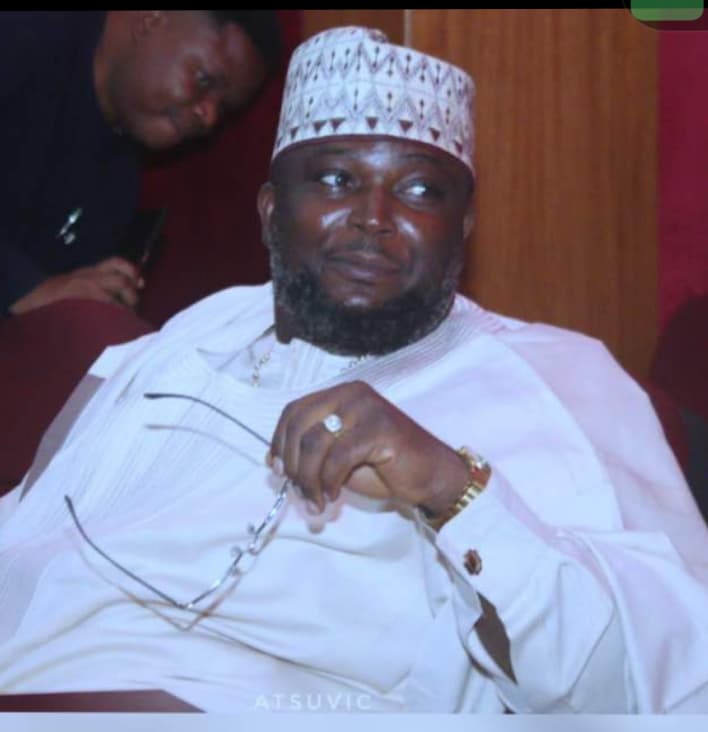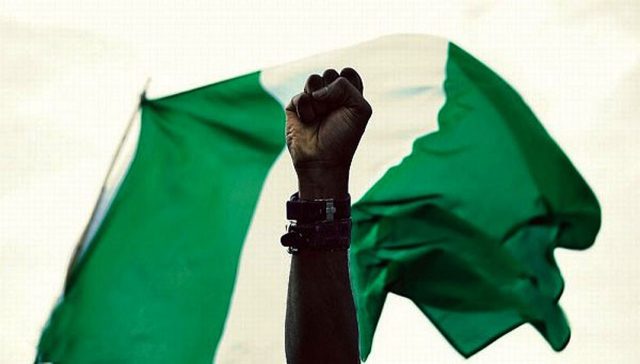By High Chief Peter Ameh
DEMOCRATIC governance in every clime cannot be said to be totally rosy, while some are faced with minor problems, some are battling with major challenges, depending on the political climate local to each clime, posing a threat to its democracy.
Since democracy is all about the involvement of the citizenry in their state political processes and other accompanying democratic practices, the place of political parties cannot be overemphasized; and this write-up will therefore address key concepts like political parties, democracy, credible elections, and challenges of democratic governance in Nigeria and the ways and manners these challenges, which are fundamental roadblocks to the Nigerian democracy, can be addressed.
What is a political party?
In every democratic environment, political parties are always the same albeit with different ideologies and programmes. A political party, simply put, is an assemblage of citizens with the same aspiration and interest to capture power and govern in the best interest of the people. In a multi-party democracy like ours, political parties are grounds where different interests of citizens are articulated, aggregated and structured into electoral choice as active participants in the political process of their nation, which is the ultimate reason for their coming together as a political party.
Functions of a Political Party.
- Government and political recruitment
- Interest articulation and aggregation.
- Political communication and education.
- Goal formation
- Link between government and people.
- Structuring of electoral choice.
- Political representation of the electorate in the best possible way.
- Making government accountable.
With the above-enumerated functions of a political party, it is obvious no democracy can be validly said to be a democracy without political parties.
According to Wikipedia, democracy (Greek: demokratía, literally “rule by people“) is a form of government in which the people have the authority to choose their governing legislation. Going further, it also said, who people are and how authority is shared among them are core issues for democratic development and constitution.
DEMOCRACY

A democracy is either direct or representative. In Nigeria, we practice a representative democracy where Nigerians elect their representatives who are to deliberate and execute decisions on their behalf on key constitutional issues, definable developments, freedom of their assembly and speech, inclusiveness and equality, membership, consent, electoral justice, right to life and majority and minority rights.
Democracy can best be expressed practically in the following ways.
- Freedom of ethnic, religious, racial and other minority groups as well as historically excluded majorities to practice their religion, culture, and to participate equally in a social and political life.
- Right of all adult citizens to vote and run for office if they meet the requirements.
- Openness and competition in the electoral arena enable any group that adheres to constitutional issues to contest for office.
- Legal equality of all citizens under a rule of law in which the laws are publicly known, clear, universal, stable and non-retroactive.
- An independent judiciary to neutrally, consistently, and independently apply the law and protect individuals’ cards and rights.
- Due process of law and freedom of individuals from torture, terror, and unjustified detention, exile or interference in personal life by the: state and non-state actors.
- Institutional checks on the powers of the elected officials by an independent legislature, court system and continuous agencies.
- Real pluralism in terms of the presence of institutions that enable people to canvass their views.
- Also include control over the state fund and security agencies, for the benefit of all citizens.
Credible Election And Democracy
No democracy can thrive without a people-powered mandate surrendered through elections. Hence, the need for free, fair and credible elections for the foundation, expansion and deepening of democracy at all given times.
Below are a few nexuses between elections and democracy.
Institutionalization: Elections help to institutionalize the process of democratic competition and participation by creating a legal administrative framework for handling and providing a platform for proper backing of candidates and policies, through the rights of eligible adults to vote and be voted for.
Legitimization: Elections are instruments of legitimizing a government, having enjoyed majority support from the citizens to have the power and authority to form a government.
Mobilization: Elections are used in democracy to mobilize popular support for government and development in a competitive fashion
Conviction: The opportunity to participate in an election helps to convince citizens that government is responsive to their needs and wants, which indirectly increases its legitimacy
Responsiveness: Elections in democracy bring out responsive attitudes in government. Because if they act otherwise, the citizens will use the instrumentality of elections to remove them from power, thereby delegitimizing the power and authority vested in the government.
Education: Elections in a democracy are another vital avenue for educating the masses. It is another democratic utility of election, where voters are educated on how they are part of democracy and governments, and how they are the only ones permitted to put in place, keep and change governments and policies at any election period.
Power: Elections empower ordinary citizens to choose among contestants for public offices. Allows active citizens to shape and reshape their government.
Accountability: Elections are a vital tool for development in a democracy. A credible election allows the citizens to hold the governments accountable; and allows offices holders to be cautious of the fact that sovereignty resides in the people.
Sovereignty: Election resides in and sovereignty in the people. Free, fair and credible elections are the sole means of effective positioning of sovereignty in the hands of the people.
Political Participation: Elections in democracy allow and provide grounds for citizens to fully participate in the democracy of their land.
Challenges Of Democracy In Nigeria
As important and germane as democracy is to every nation, it cannot be said to be without its challenges, and this also includes its practice in Nigeria.
These challenges are encountered at the foundational, expansion and deepening levels.
Foundational Challenges
- Socioeconomic inequality (only money bags can vie or those they sponsor).
- Ethno-religiosity.
Expansion Challenges
- Electoral insecurity (because politics is lucrative)
- Interference in the electoral process (because of appointive powers of political stakeholders)
- Rigging.
Deepening Level
- Corruption (because of access to state funds)
- Parties internal democracy.
- Resource allocation rivalry, etc
Political Parties And Challenges Of Democracy
Political parties being the only vehicle or link between the people of Nigeria and their form of democratic environment and participation, successes and challenges of democracy cannot also be far-fetched from these important platforms which are recruitment grounds for those who are to represent the people in the democratic assembly.
While political parties cannot be totally whole, these bodies have been striving to be at least ideal, but the political environment, as was laid down from the foundation, has been making it difficult for this to be achieved accordingly.
Nigeria returned to democracy in 1999 without the citizens owning the political parties, and this till today has created socio-economic inequality in getting people elected into positions (since only money bags who are the owners of the parties can vie or those they sponsor).
Nigeria is also yet to recover from the way it came into democracy right from the First Republic. In the First Republic, we have parties like Northern Elements Progressive Union (NEPU), founded in Kano on 8 August 1950 and thereby became the first political party in Northern Nigeria solely for northerners; the National Council of Nigeria and the Cameroons (NCNC) which became largely identified with Igbo interests; and then the Action Group founded by Awolowo and his associates which also became the dominant party of the Western Nigeria then.
These ethnic or religious biases that set in right from time are yet to be wholly dealt with as we can see from our experiences.
In a bid to feign expansion of our democracy, we have been engaging in electoral insecurity. Politics became do-or-die because it was lucrative.
We have times without number recorded political interference with our electoral process from those with appointive powers; to the extent that the late president Umar Yar’Adua admitted the election that brought him in was not free, fair and credible.
At the deepening level, access to state funds by members and structures of ruling parties is a great challenge to political parties in general both ruling and in opposition and this has led to resource allocation rivalry, etc.
Conclusion and Recommendation
The above-itemized challenges are what have posed a major threat to democracy in Nigeria and by extension affecting the involvement of the citizens of Nigeria in the political processes and other democratic practices of their land. I hereby recommend the following.
Recommendations For The Review Of Our Country’s Electoral System,
- The establishment of a new method of appointing members of the Nigerian election management body (EMB) from the whims and caprices of the President of the Federal Republic in order to give the Independent National Electoral Commission (INEC) the status of a truly independent National Electoral Commission.
2, The unbundling of Independent National Electoral Commission INEC as fellows;
- i) Election Management Body (IBM) (solely responsible for the conduct of elections and nothing more).
- ii) Election and Related Offences Commission
iii) Political Party registration and management commission
3) Election Disputes Constitutional Complaints Commission.
The regular courts should have nothing to do with electoral disputes. We need a Constitutional Court or Constitutional Commission just as we have the Electoral Commission. Most disciplined Judges would be elected through a thorough and rigorous process to get rid of the nuisance of dealing with corrupt politicians who are bent on destroying our electoral jurisprudence.
4, The burden of proof should be placed on the Commission to show how they arrived at announcing a winner for the election by making sure that all results sheets are available within 5 working days after the declaration of a winner.
- All elections must be conducted in one day to get rid of the bandwagon effect after the announcement of the winner of the presidential contest.
- Reduce the timeframe for hearing and conclusion of electoral litigation to 60 days and ensure that no swearing-in takes place until all litigation relating to the election under review is concluded and judgment entered.
- High Chief Peter Ameh is the former National Chairman of the Inter-Party Advisory Council of Nigeria. (IPAC).
Eighteen-Eleven Media


